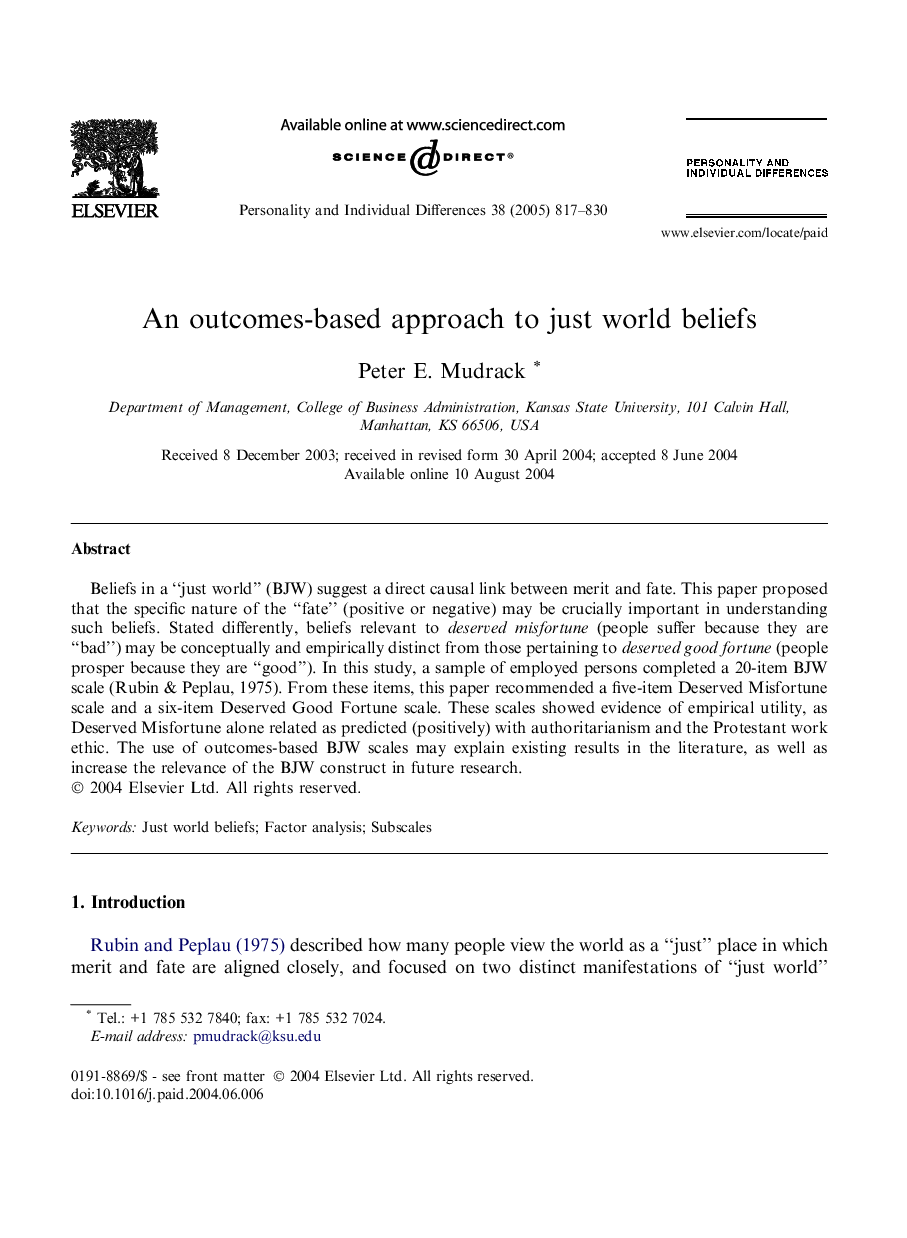| Article ID | Journal | Published Year | Pages | File Type |
|---|---|---|---|---|
| 10441366 | Personality and Individual Differences | 2005 | 14 Pages |
Abstract
Beliefs in a “just world” (BJW) suggest a direct causal link between merit and fate. This paper proposed that the specific nature of the “fate” (positive or negative) may be crucially important in understanding such beliefs. Stated differently, beliefs relevant to deserved misfortune (people suffer because they are “bad”) may be conceptually and empirically distinct from those pertaining to deserved good fortune (people prosper because they are “good”). In this study, a sample of employed persons completed a 20-item BJW scale (Rubin & Peplau, 1975). From these items, this paper recommended a five-item Deserved Misfortune scale and a six-item Deserved Good Fortune scale. These scales showed evidence of empirical utility, as Deserved Misfortune alone related as predicted (positively) with authoritarianism and the Protestant work ethic. The use of outcomes-based BJW scales may explain existing results in the literature, as well as increase the relevance of the BJW construct in future research.
Related Topics
Life Sciences
Neuroscience
Behavioral Neuroscience
Authors
Peter E. Mudrack,
